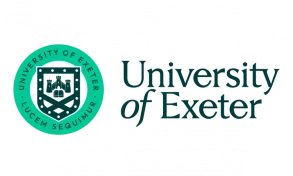Challenge
An AKT2I partnership between University of Exeter and The Space looked to create an impact measurement framework to find out.
This Case Study is based on information provided by the AKT2I partners.
Measuring the value and impact of digital culture on and for individuals, communities, wider society and economies is complex. And, as digital platforms for culture proliferate so too does the need to better understand its social, cultural, educational and environmental impact.
This was the impetus behind an AKT2I project which brought together The Space and the University of Exeter Business School in a first-time collaboration designed to apply academic expertise to solve a key challenge in the cultural sector.
Founded in 2013 by Arts Council England and the BBC*, The Space is now an independent not-for-profit organisation connecting artists and audiences online. Based in Birmingham, The Space enables the arts, culture and heritage sectors to engage and inspire audiences using digital and broadcast content and platforms. But how to measure the impact of such content?
What do funders, content producers and audiences value?
This AKT2I project set out to scope potential frameworks for measuring impact aiming to
- Identify the dimensions of value that are highest priority for funders, content producers and audiences.
- Identify framework models within and adjacent to the cultural sector that map well to these priorities.
- Identify metrics within each value dimension that correlate strongly with value creation whilst being simple to gather, monitor and analyse for organisations with limited digital confidence, infrastructure and skills.
- Create a practical prototype tool that can be user tested on The Space’s recent 11 environmental themed commissions.
The work drew on University of Exeter Business School’s unique expertise in developing metrics for organisational performance, and the measurement and evaluation of complex social and cultural initiatives e.g. Bristol’s Festival of Nature and Coventry City of Culture, plus wider digital economy expertise.
Outcome
Internally, a robust impact framework would enable The Space to provide evidence to its funders – ACE, Arts Council of Wales, Creative Scotland, BFI, British Council and others – of the impacts of its interventions, and to refine their effectiveness.
Externally, cultural sector leaders need to align their limited resources with the most effective ways to achieve societal benefits such as audience diversification, cultural value creation and the minimisation of environmental impacts.
In its nine years of working in this area, The Space had yet to identify a framework robust enough for funders; creative enough for artists’ reflective practice; or agile enough to respond to a rapidly changing digital landscape.
Creating a meaningful evaluation framework
The team got to work designing the impact framework using a range of different inputs:
- extensive desk research on national and global models of digital content evaluation in cultural and adjacent sectors;
- prototyping from evaluating recent digital cultural commissions by The Space, focused on environmental sustainability themes and sustainable digital production;
- a total of 16 interviews conducted with commission representatives, funders and consultants.
The team was then able to develop a preliminary framework whose design reflected the findings from their research activities.
This framework is comprehensive, multi-dimensional and multi-levelled incorporating both economic and non-economic modes of value (such as welfare, wellbeing, environmental impact) that produce intended and/or unintended benefits for individuals, their communities and wider society, over the short and long term. These are assessed on three levels – the intrinsic, extrinsic and environmental.
Impact
The intrinsic aspect puts a focus on how the experience of arts and culture impacts individuals on an emotional level, rendering it subjective. The extrinsic aspect is more objective, reflecting the contribution of culture on specific economic and social outcomes such as employment creation, tourism and educational outcomes. While the environmental encapsulates the wider macro-level impact of digital cultural content on individuals and their communities (e.g. political, technological etc).
Given that the original aim of the project was to research existing frameworks and identify dimensions to be considered when designing a framework, the project has achieved well beyond expectations by developing a preliminary framework that can be built into a practical prototype tool to assess the impact of digital cultural content produced by the organisation’s commissions.
The partners agree that this development would not have progressed to the extent that it has without the AKT2I intervention.
What they say
“The research support has been invaluable in accelerating our understanding of the current status of value measurement in the sector and opportunities to innovate in this area. Our researcher and their supervisors have helped stretch our thinking and provided a great starting point for the next steps in our development.”
Further information
For more information about this project, contact s.v.g.ocallaghan@exeter.ac.uk







